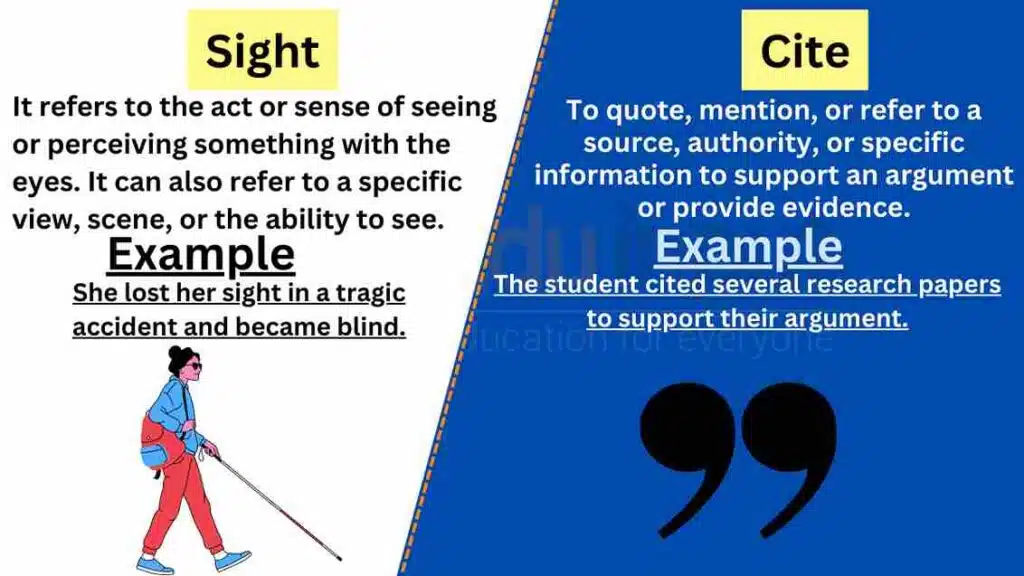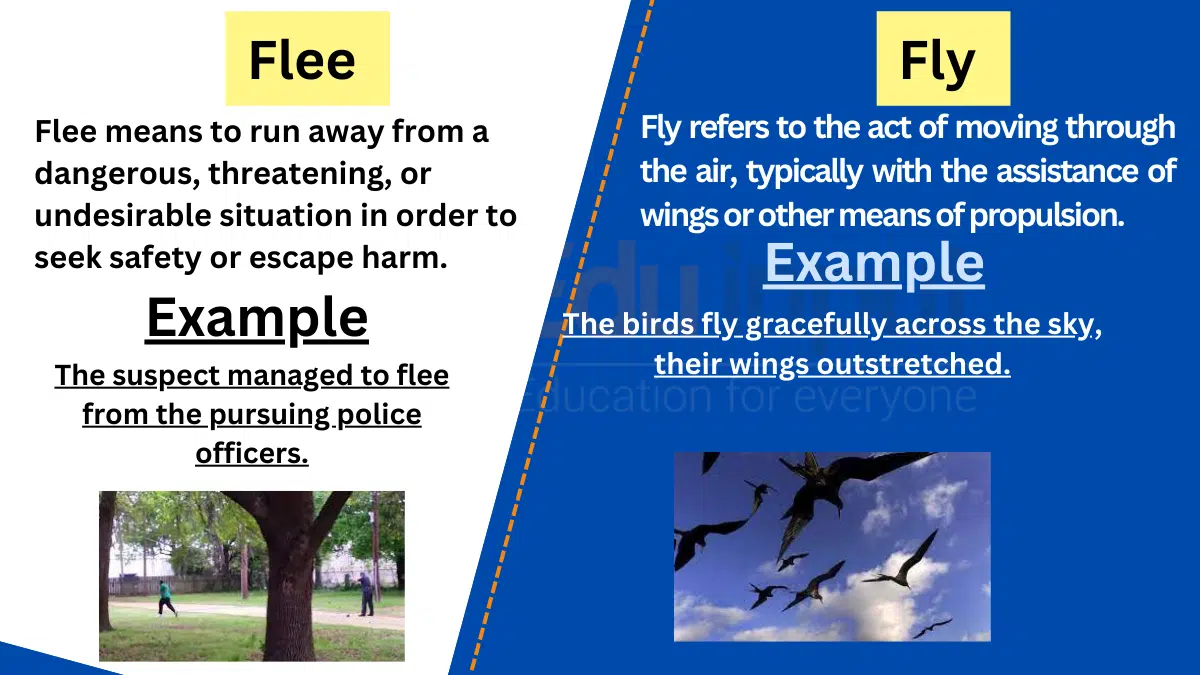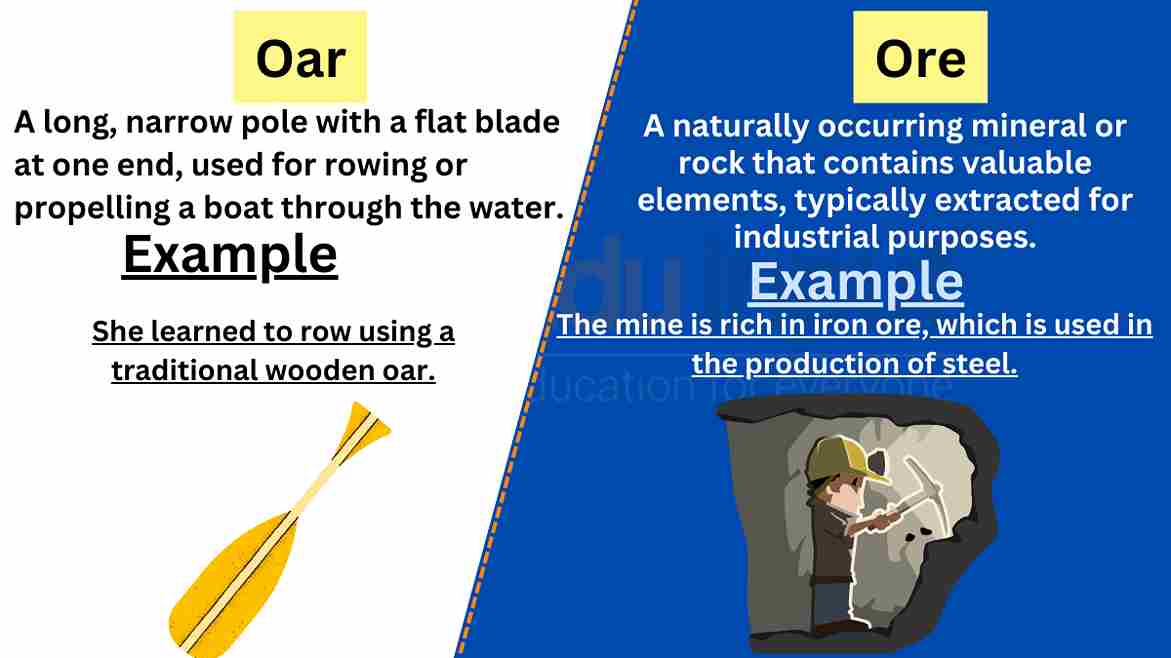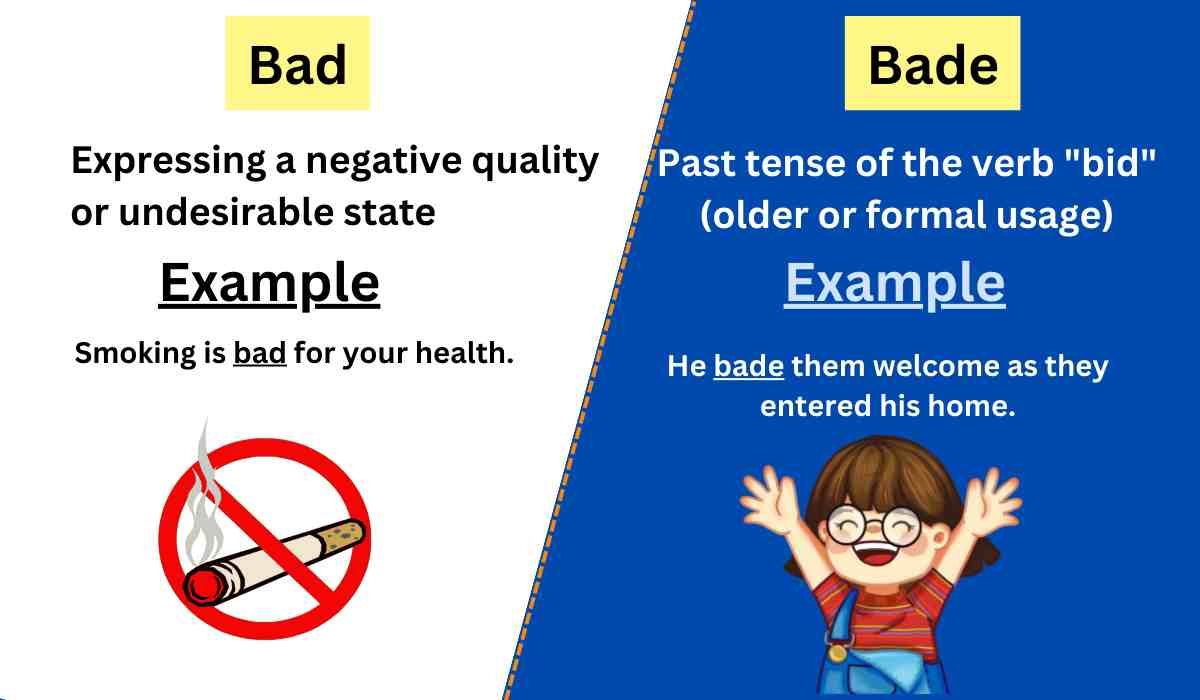Sight vs Cite-Difference Between And Example
In the English language, certain words may sound similar but have different meanings, leading to confusion in written and spoken communication. One such pair is “sight” and “cite.” Although they may sound alike, these words have distinct definitions and are used in different contexts.
This article aims to clarify the difference between “sight” and “cite,” providing examples and explanations to help readers grasp their proper usage. By understanding the nuances of these words, individuals can communicate more effectively and avoid misunderstandings. Let’s explore the meanings and applications of “sight” and “cite” in the English language.

Meanings and Examples
Sight Meaning
“Sight” can have multiple meanings, but in general, it refers to the act or sense of seeing or perceiving something with the eyes. It can also refer to a specific view, scene, or the ability to see.
Sight Examples
- “The beautiful sunset was a breathtaking sight.”
- “She lost her sight in a tragic accident and became blind.”
- “We visited the famous landmarks and enjoyed the sights of the city.”
Cite Meaning
“Cite” is a verb that means to quote, mention, or refer to a source, authority, or specific information to support an argument or provide evidence.
Cite Examples
- “The student cited several research papers to support their argument.”
- “When writing an academic paper, it is essential to cite all your sources.”
- “The lawyer cited relevant case precedents during the trial.”
Difference Between Sight and Cite
| Sight | Cite | |
| Meaning | Noun: the act or sense of seeing or perceiving | Verb: to quote, mention, or refer to a source or information |
| Example | “The beautiful sunset was a breathtaking sight.” | “The student cited several research papers to support their argument.” |
| Usage | Describing the act of seeing or perceiving | Referring to quoting or mentioning a source or providing evidence |
| Context | Vision, perception, observation | Research, academia, legal proceedings |
Usage in a Paragraph
The noun “sight” is used to describe the act or sense of seeing or perceiving something with the eyes. It can refer to the general ability to see or a specific view or scene. For instance, a beautiful sunset can be described as a breathtaking sight. Unfortunately, some individuals may lose their sight due to accidents or medical conditions, resulting in blindness. Additionally, when exploring a city or visiting landmarks, one can enjoy the sights and take in the surrounding views. “Sight” is a term used to discuss vision, perception, or observation.
On the other hand, the verb “cite” is employed when quoting, mentioning, or referring to a source, authority, or specific information to support an argument or provide evidence. It is commonly used in academic writing, research, and legal proceedings. For example, a student writing a research paper needs to cite various sources to support their argument or provide credibility. Similarly, when presenting a case in a court of law, lawyers often cite relevant case precedents to strengthen their arguments. “Cite” is a term used when referring to quoting or mentioning sources and providing evidence in a specific context.
Distinguishing between “sight” and “cite” is crucial for effective communication. While “sight” refers to the act or sense of seeing or perceiving, “cite” is used when quoting, mentioning, or referring to a source or specific information. By understanding the difference







Leave a Reply